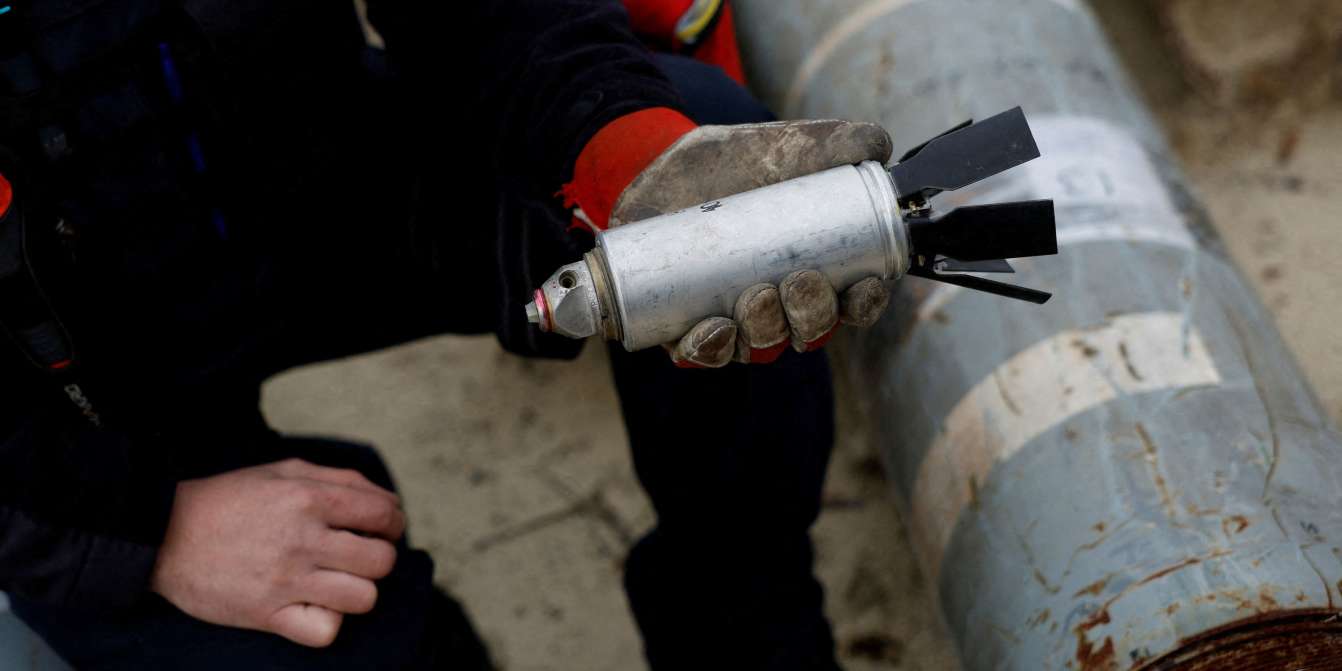The United States has decided to send cluster munitions to Ukraine, multiple news outlets have reported, despite concerns about the deployment of weapons banned by more than 100 countries, according to Al Jazeera.
A weapons package including cluster munitions fired from a 155-millimetre Howitzer cannon is expected to be announced as soon as Friday, three US officials told the Reuters news agency on condition of anonymity.
The New York Times, citing people familiar with the discussions who requested anonymity, reported that several of US President Joe Biden’s key aides, including Secretary of State Antony Blinken, had recommended the US send the weapons at a meeting of top national security officials last week, despite what they described as their own deep reservations.
Cluster bombs release large numbers of smaller bomblets across a wide area posing a major threat to civilians both during the war and long afterwards because some of the bomblets will fail to explode.
More than 120 countries have signed the 2008 United Nations Convention on Cluster Munitions to ban their use, including some of Ukraine and the US’s key allies such as France and the United Kingdom.
Ukraine, Russia and the US have not signed that treaty, although a 2009 law bans the US from exporting cluster munitions with bomblet failure rates above 1 percent, which covers virtually the entire US military stockpile. Biden, however, can override such prohibitions in cases deemed in the interests of US national security.
Earlier, Human Rights Watch criticized Ukraine and Russia for their use of cluster weapons in the conflict.
The rights group said Russia had “extensively used cluster munitions, causing many civilian deaths and serious injuries,” while Ukrainian cluster munition rocket attacks on the then-Russian-occupied city of Izyum in 2022 had killed at least eight civilians and wounded 15 more. Ukraine told HRW it had not used cluster munitions in or around the city at the time.
“Cluster munitions used by Russia and Ukraine are killing civilians now and will continue to do so for many years,” Mary Wareham, the group’s acting arms director, said in a statement. “Both sides should immediately stop using them and not try to get more of these indiscriminate weapons.”
Despite the humanitarian concerns, Ukrainian President Volodymyr Zelenskyy and other senior Ukrainian officials have been calling for new stocks of cluster weapons, saying they are the best way to break through the Russian trenches that are slowing Kyiv’s counteroffensive. Ukraine is also running low on conventional artillery shells.
One US official told the Times it had become clear that the current battlefield situation had made cluster weapons “100 percent necessary”.
A Pentagon official said last month that the US military believed cluster munitions would be useful for Ukraine, but they had not been approved for Kyiv because of congressional restrictions and concerns among allies.
The total aid package is expected to be worth as much as $800m and includes munitions for High Mobility Artillery Rocket Systems (HIMARS), and ground vehicles such as Bradley fighting vehicles and Stryker armoured personnel carriers, officials said.
It will be the 42nd aid package since Russia began its full-scale invasion of Ukraine in February 2022.









